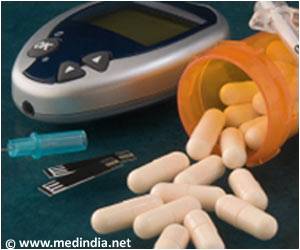
"What we saw in this study is that the EHR really helped our alignment with quality measures and clinical guidelines for treatment," said Marc Jaffe, M.D., clinical leader, Kaiser Permanente Northern California Cardiovascular Risk Reduction Program. "Increases in information availability, decision support and order-entry functionality help clinicians to identify the most appropriate patients for drug-treatment intensification and retesting, which leads to better care of patients with diabetes."
The statistically significant improvements in drug-treatment intensification (increases in medication) were found in patients with HbA1c values of 7 percent or greater and increases in guideline-recommended follow-up testing for patients who had elevated lab results. HbA1c levels indicate how high a patient's blood glucose has been on average over an 8- to 12-week period. High levels of low-density lipoproteins (measured by LDL-C levels), or "bad" cholesterol, can lead to a buildup of cholesterol in the arteries.
Ultimately, use of an electronic health record EHR was associated with improved HbA1c and LDL-C levels among all patients, according to Mary Reed, DrPH, a research scientist with the Kaiser Permanente Northern California Division of Research and the lead author of the study.
Researchers used a quasi-experimental design with outpatient EHR implementation sequentially across 17 medical centers in Kaiser Permanente's Northern California integrated care delivery system. The study included 169,711 patients with diabetes mellitus. Researchers adjusted for patient characteristics, medical center, time trends and facility-level clustering. During the study period (2004 to 2009), patients had a total of 1,372,735 HBA1c and 1,268,086 LDL-C tests.
Between 2005 and 2010, Kaiser Permanente Northern California implemented Kaiser Permanente HealthConnect® in 17 hospitals and 45 medical office buildings. The availability of this system allowed researchers to examine data and evaluate the EHR effects as well as concurrent controls to adjust for trends in diabetes care practice unrelated to EHR, explained the researchers.
Advertisement
"Our next step is to see how EHR use improves downstream clinical events in patients with diabetes," said Reed. "Since we have found that glycemic control and lipid levels were better, now we need to better understand if EHR use impacts measurable events like emergency room visits. This would be an important next step in evaluation the impact and potential value of electronic health records."
Advertisement















